Kenya: dikdik is the smallest antelope in the world
Says Mariika: "The smallest antelopes in the world — dikdik, or dik-dik (Latin madoqua swaynei), were found by me in the African savanna in Kenya, in the National Park East Tsavo [Tsavo], or Tsavo East. Small specimens can easily fit in the palm of an adult man."
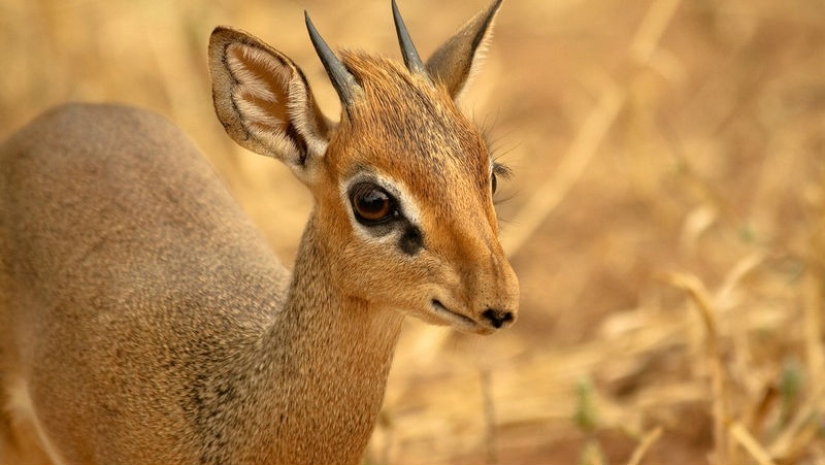 Source: LiveJournal/maryika
Source: LiveJournal/maryika

1. Dikdiki is the rarest example of animal fidelity in the wild, they live all their lives only in permanent pairs.
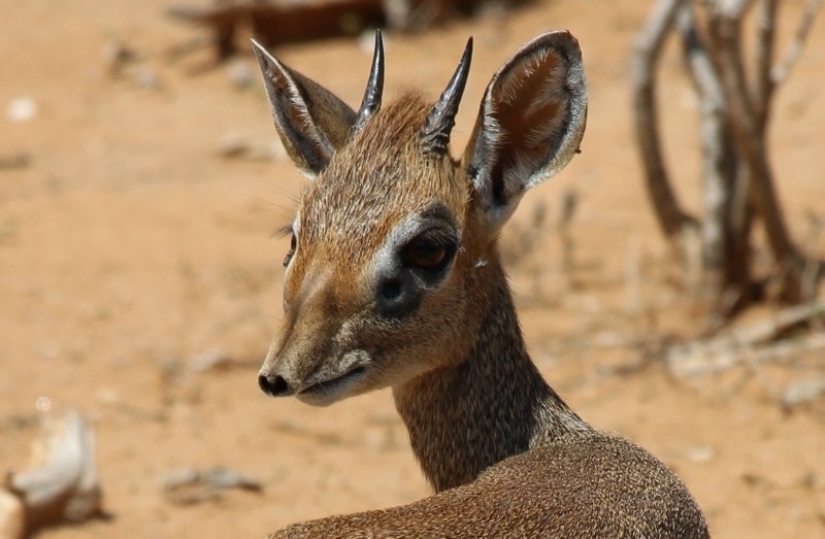
2. They are not so easy to find and even more difficult to shoot - these nimble, timid, merging with the environment tiny antelopes with incredibly cute faces and nose—trunk are not at all as simple and harmless as it seems at first glance.
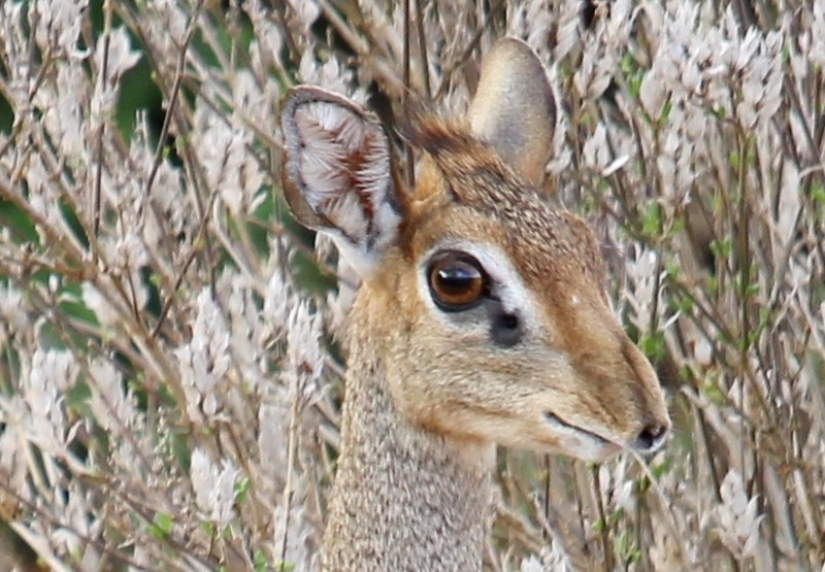
3. I managed to make a rare shot — to shoot the whole family with the baby on a walk.
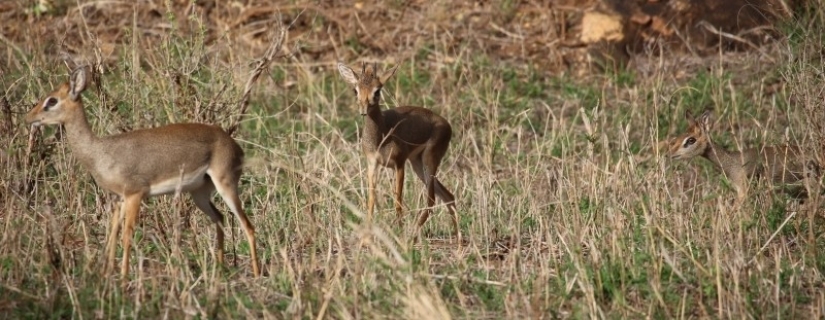
4. These crumbs are almost invisible in the grass and low-growing shrubs and masterfully merge with the environment. The coat color is dominated by various shades of light gray-brown and brown — this coloring helps dwarf antelopes to be almost invisible against the background of the surrounding landscape.
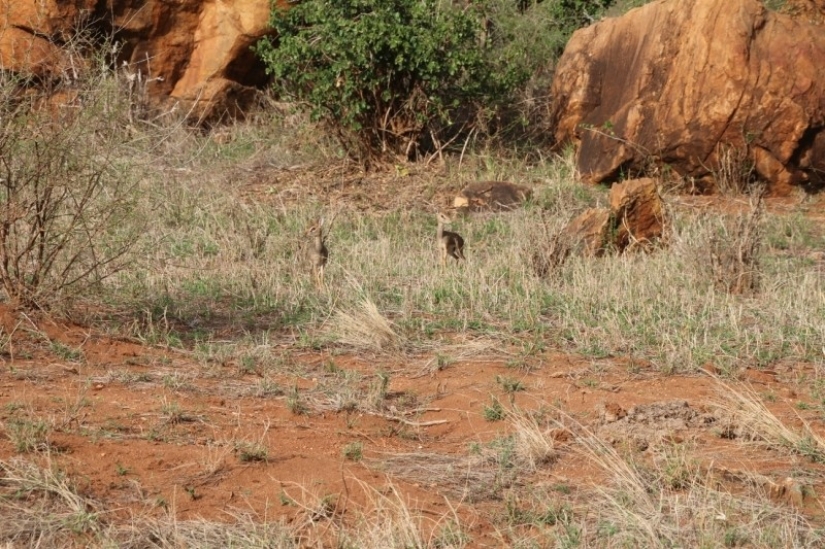
5.
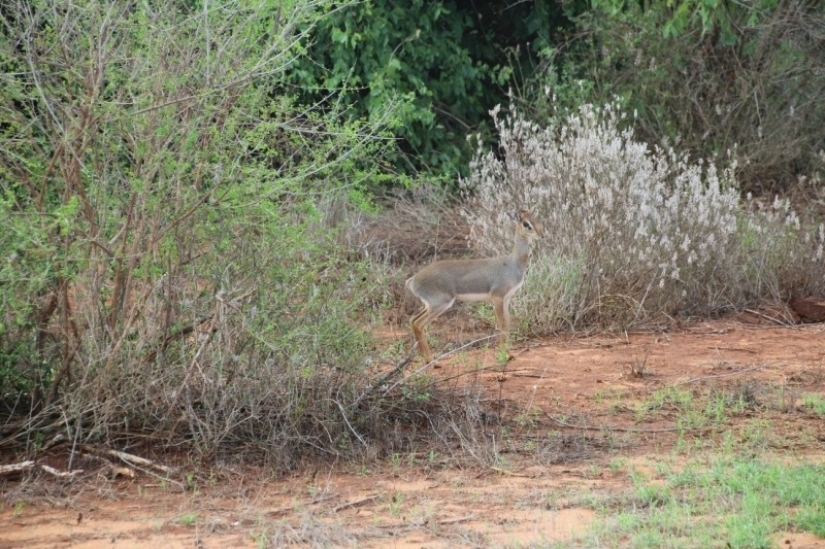
6.
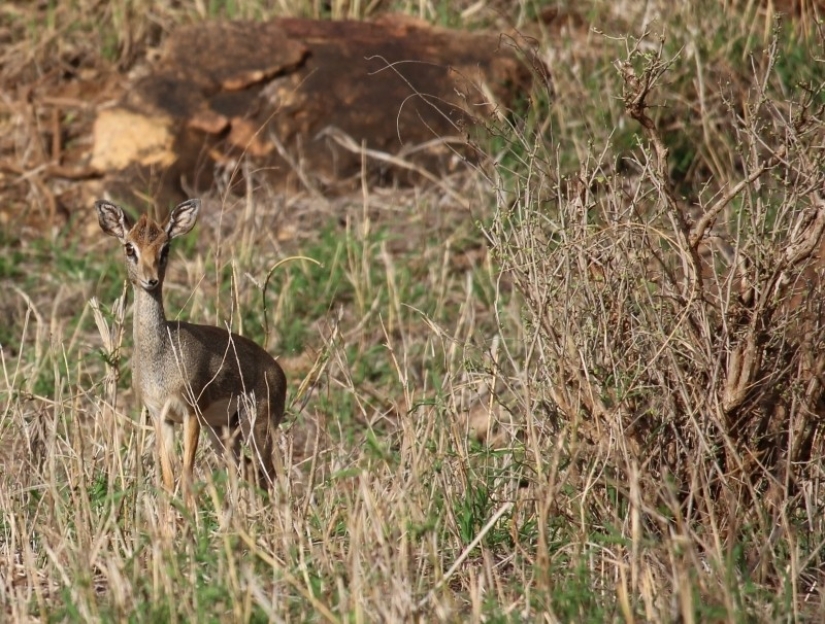
7. This species endemic to Africa, which lives only in Eastern and Southwestern Africa and is not found anywhere else, belongs to the subfamily of dwarf antelopes. Their main habitat is in four countries: Kenya, Tanzania, Namibia and Angola.
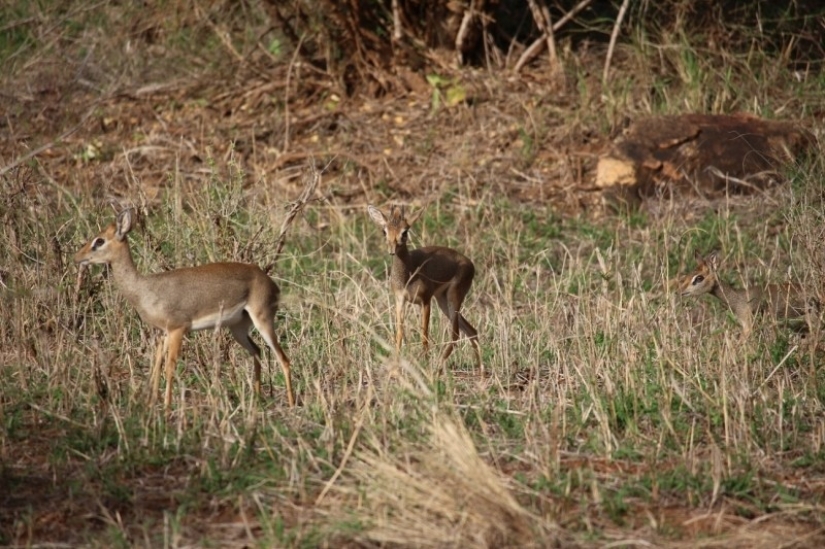
8. The body length of a miniature antelope is from 45 to 80 cm, the height at the withers is only 30-35 cm, and the body weight of an adult is only from 2 to 6 kg! Despite their doll-like size and harmless appearance, these animals have a fairly combative character and rather brazen behavior.
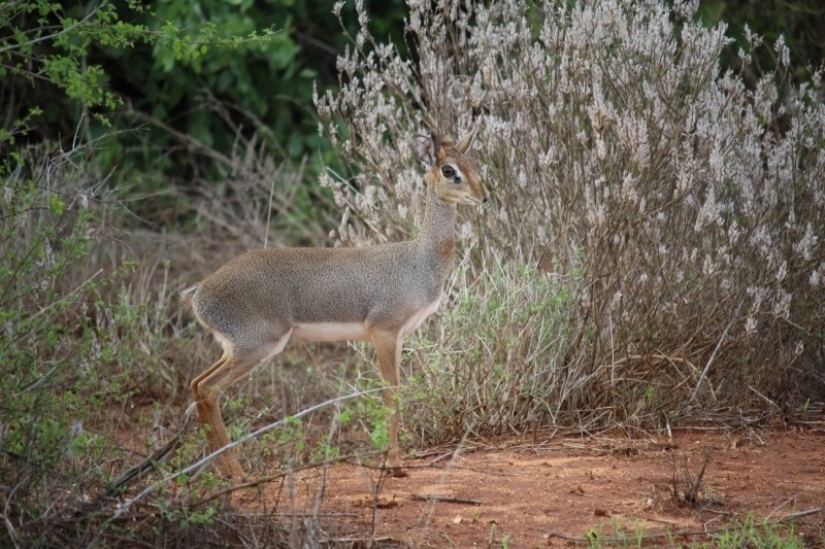
9.
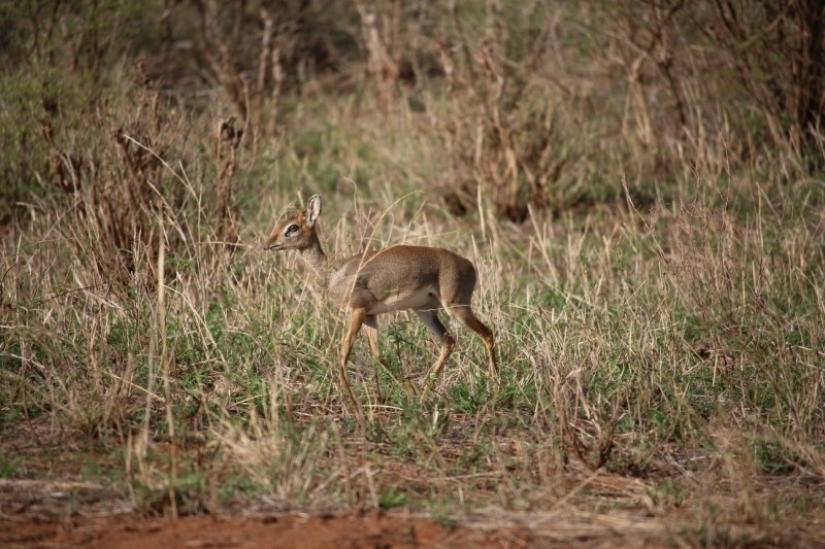
10. Dikdiki are exceptionally graceful animals, with thin limbs (and the hind legs are longer than the front ones), with large black eyes and large movable ears.
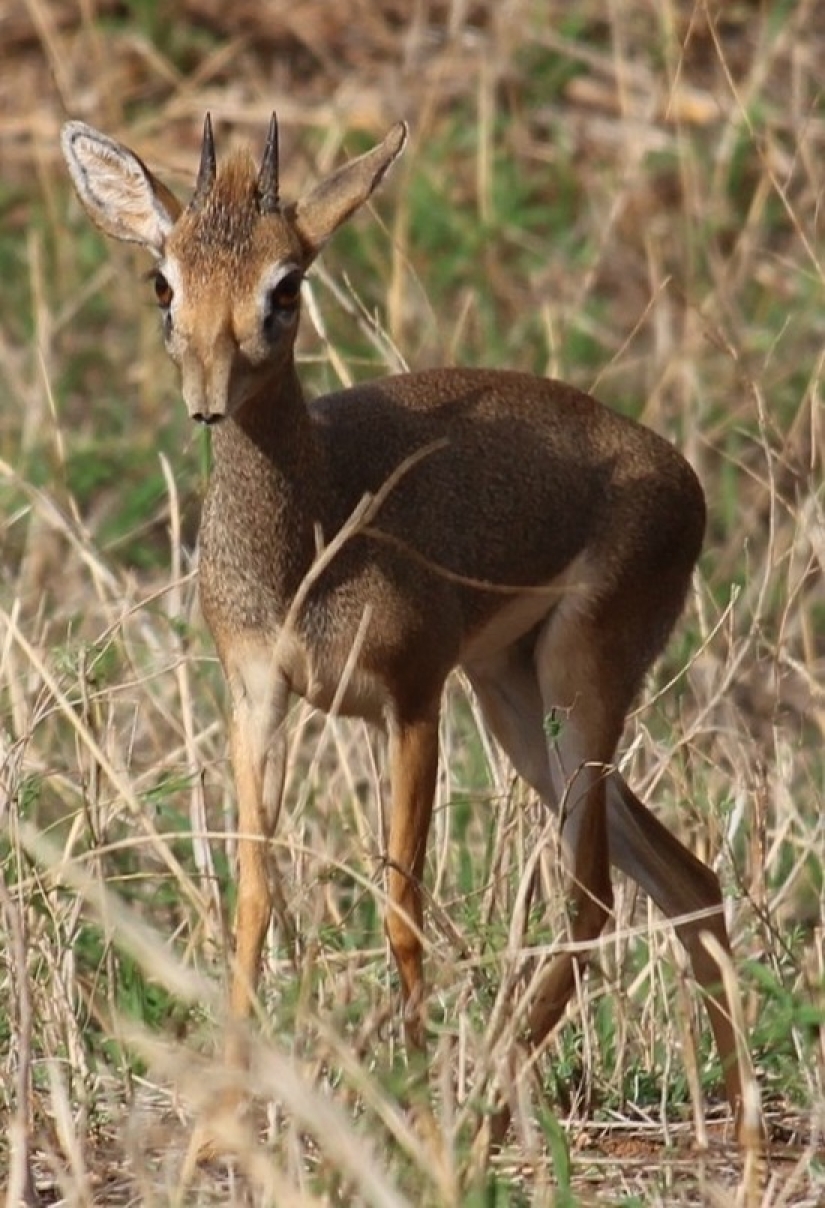
11. Dikdiks have a funny face with a nose made of two elongated movable tubes-proboscis. In males, the nose is longer and fleshier, and in females it is more neat and short.
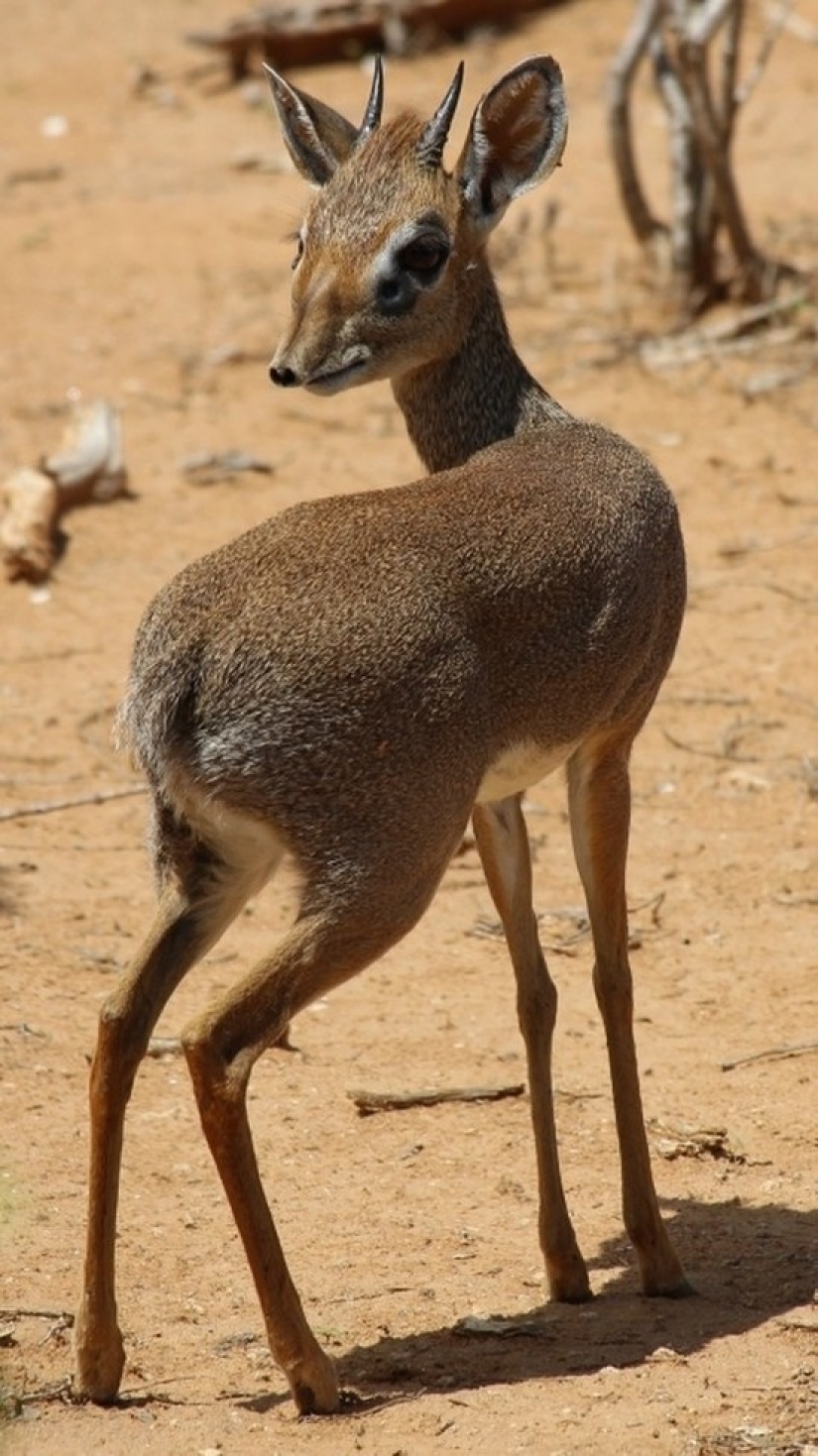
12. Females have a funny crest on their head, and only males have neat small and sharp horns.
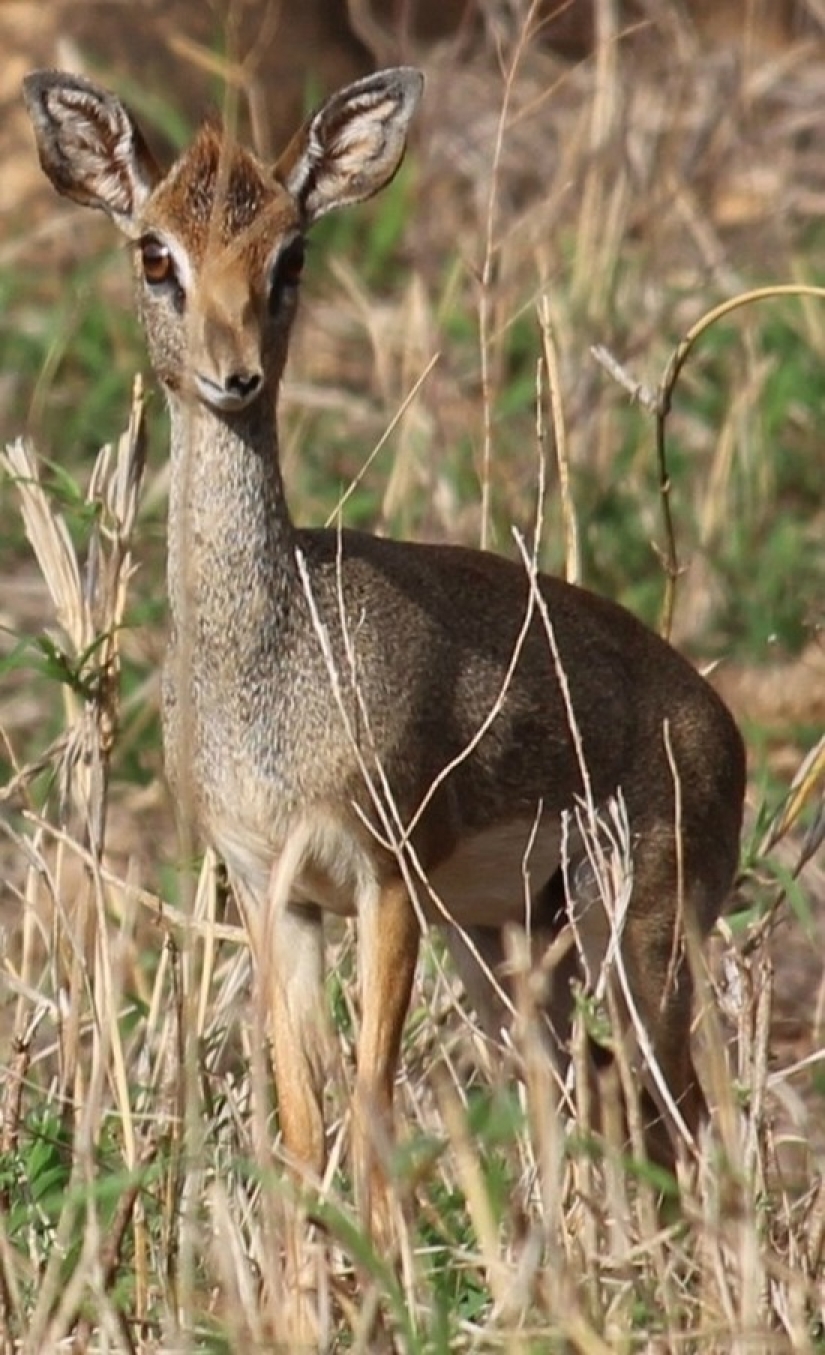
13. Females are noticeably larger than males, but males undoubtedly dominate family life.
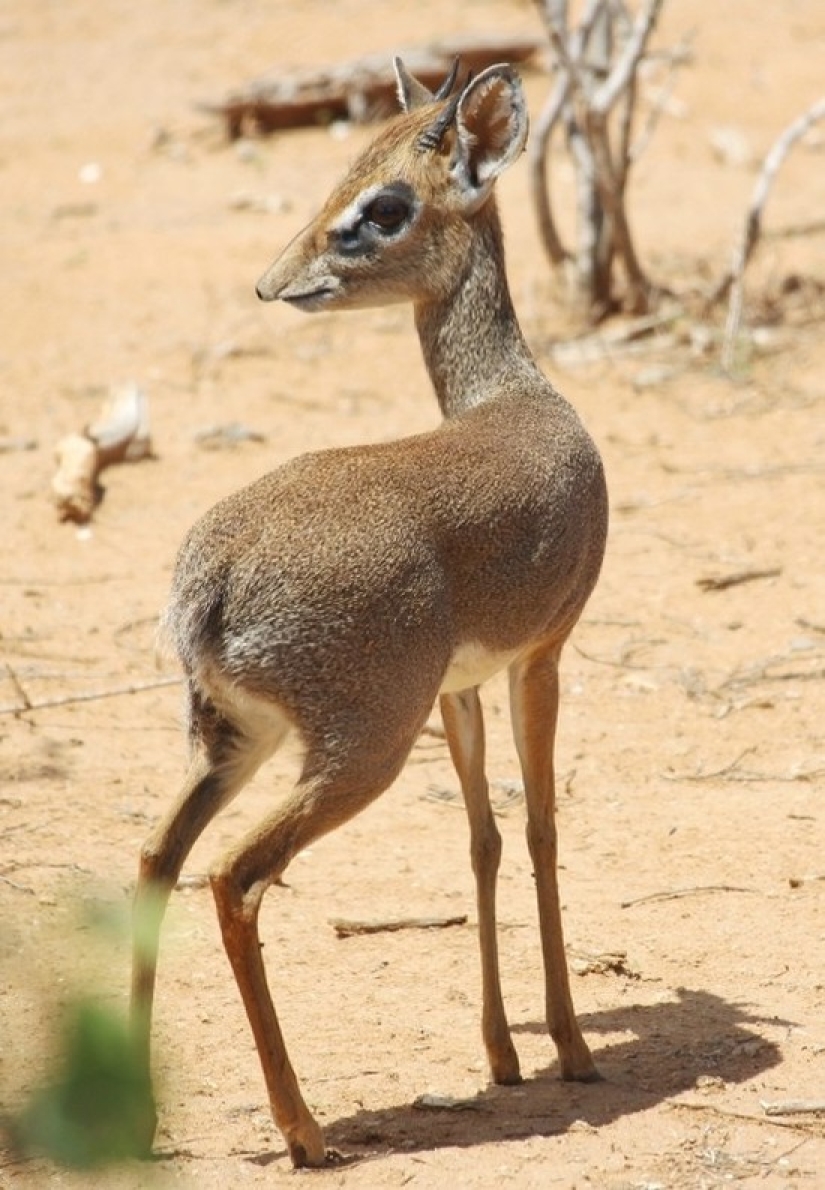
14. Dikdiki choose a companion for life, they are very loyal and live only in permanent pairs. In the entire history of research on this species of antelope, not a single cub conceived from an outsider has been found. It is not surprising, because during the mating season, males accompany females almost constantly (that is, they move only as a couple), and outside the mating season — for 65% of the time. During the mating season, male strangers try to break through to the females, but such intrusions quickly end with a male attack, and the females hide during the fight. Battles between males never lead to deaths.
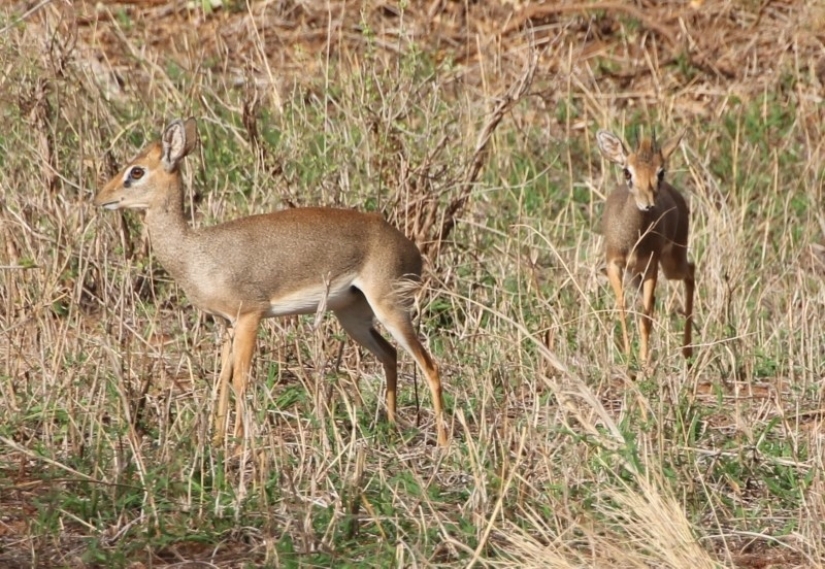
15.
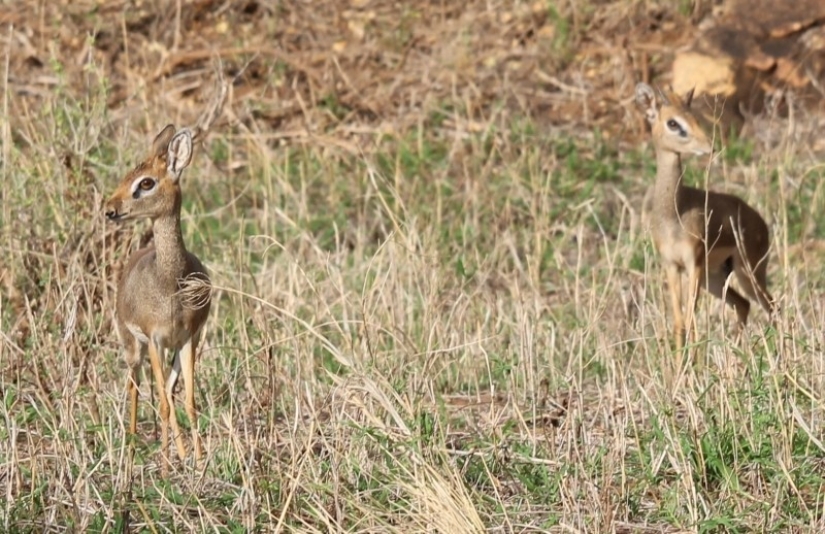
16. Sometimes, if you're lucky, dikdikov can be observed by the whole family — dad, mom and baby. Each pair has its own territory — the size of the plot is about a hundred meters in diameter (in some cases it can reach half a kilometer), which it has been using for several years. The male and female mark the boundaries of the territory with piles of manure and immediately drive away the intruders. And if a couple of dikdiks happen to wander beyond the boundaries of their territory, the "recovered" male first drives his female "home".
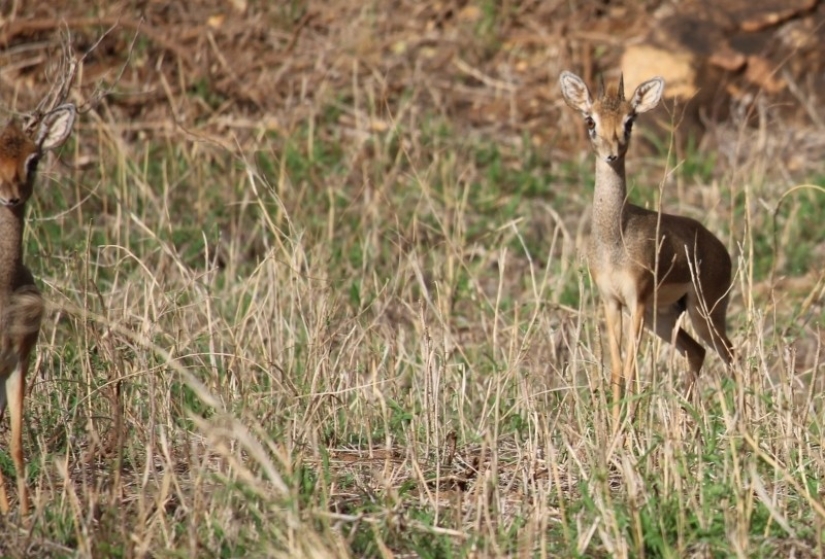
17.
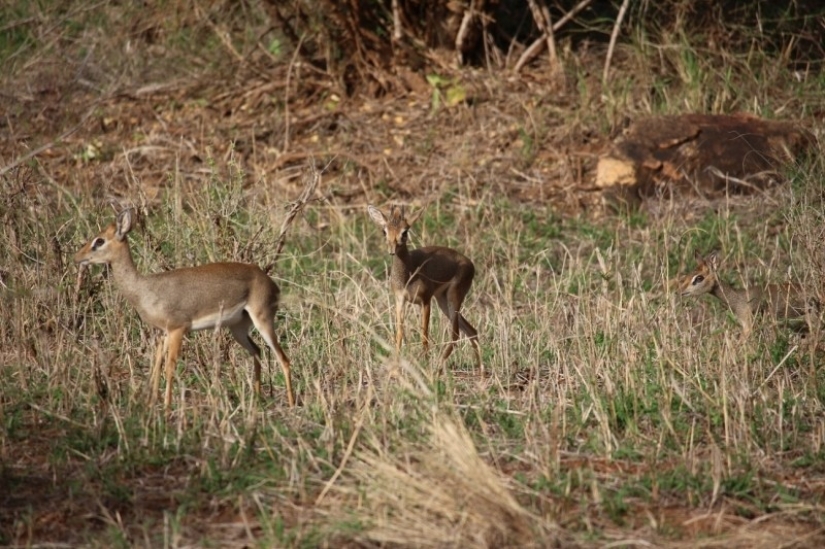
18. Female dwarf antelope are able to bring one cub twice a year. Pregnancy lasts six months and usually falls at the end of the rainy season. Males practically do not participate in the protection and upbringing of cubs. The young dikdik becomes an adult by about a year, after which he is expelled from the territory of his parents and then independently searches for a mate and a plot. Moreover, the females chase away their daughters, the males chase away their sons. The exile, as a rule, does not go far and tries to "stake out" his own plot on neutral land between the parent and the neighboring couple's plot.
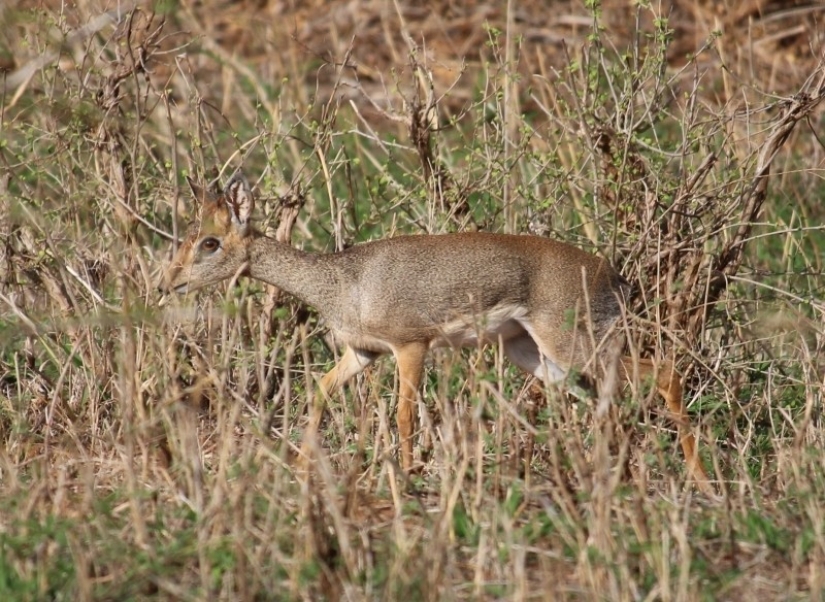
19. These animals prefer to settle in arid areas overgrown with dense bushes — their main food. Dense dense thickets also serve as a shelter for them from predators. Among the thickets, they make themselves paths-tunnels into which only they can squeeze themselves, and a larger animal simply cannot climb there. Therefore, they are not afraid of hyenas, leopards, or other large predators.
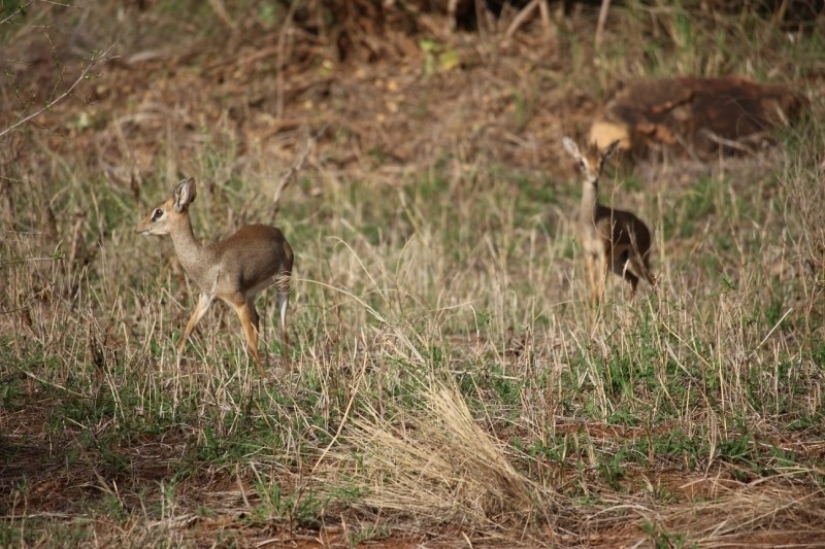
20. Dwarf antelopes are quite selective in food. For the most part, these animals eat stems, leaves, flowers, pods and seeds of shrubs and trees rich in protein. Grass is not their main diet, although they can pinch its young shoots. Animals get all the necessary moisture from plants and dew. Therefore, they can survive in places where there are no reservoirs for drinking. They feed in the early morning and at dusk, and in the afternoon they often rest or just walk. Dikdiks are exclusively herbivorous animals. (c) masterok
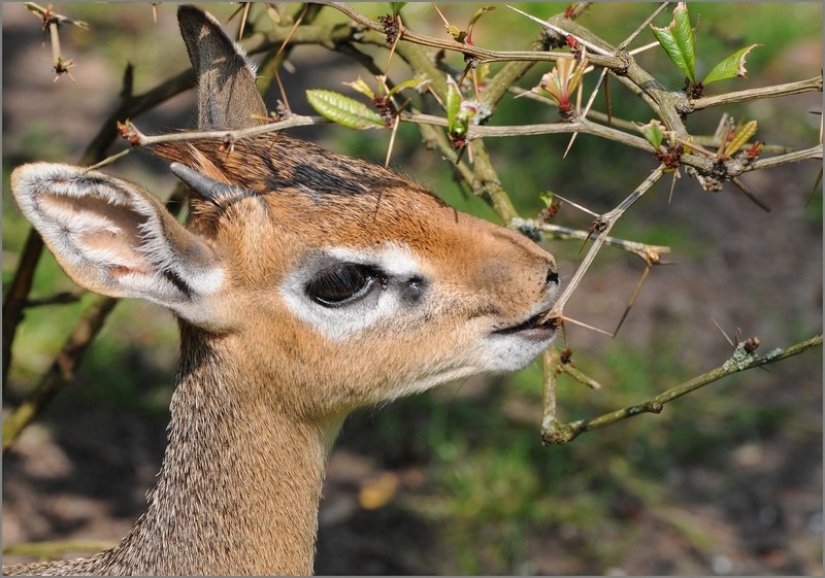
21.
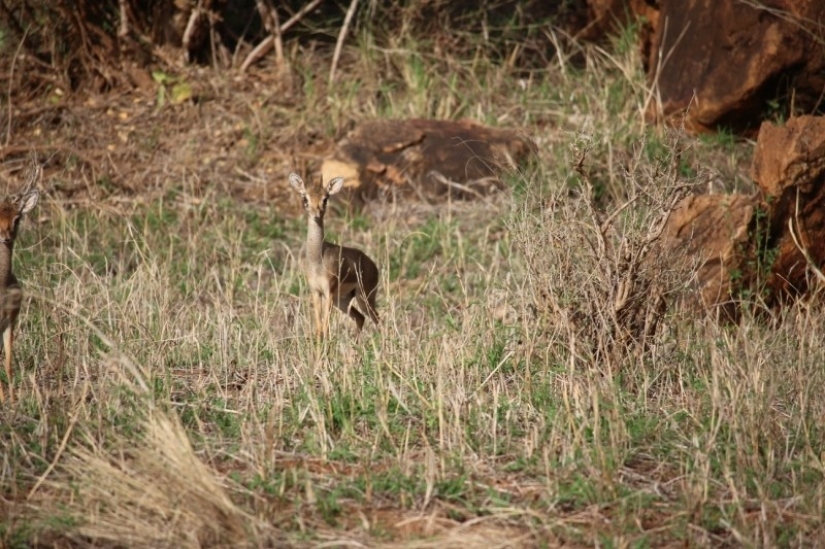
22. It is quite difficult to see them in nature, firstly, because of their tiny size and almost professional camouflage, and secondly, they are very cautious and timid and at the slightest danger they quickly take to their heels, disappearing with huge jumps among bushes and stones in the blink of an eye. By the way, at short distances dikdiki can reach speeds up to 42 km / h!
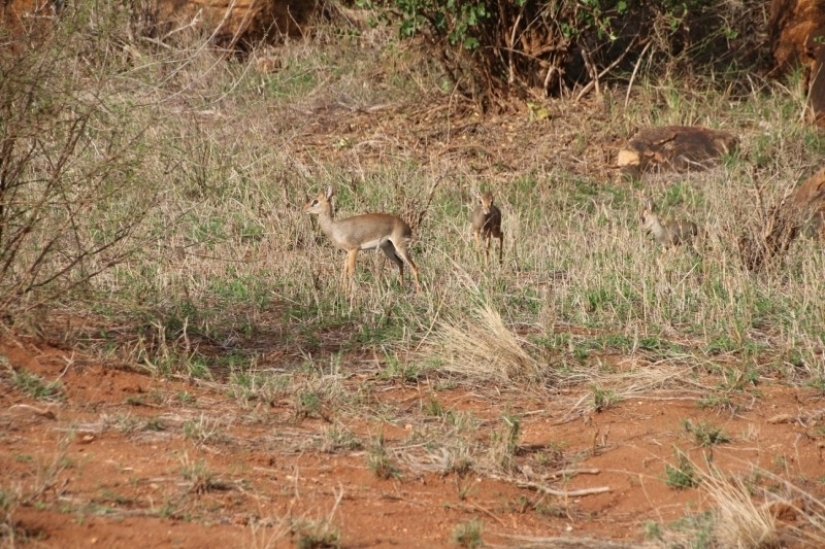
23.
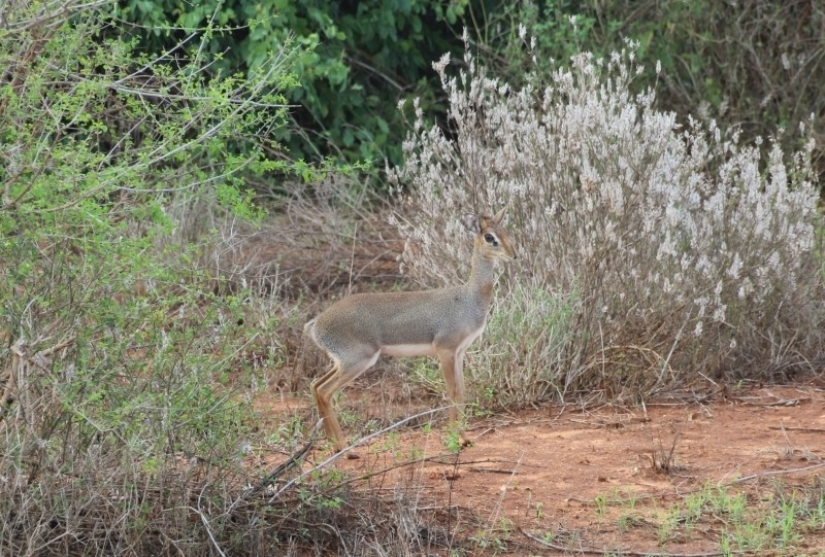
24. You rarely see Dikdiks in an open area. If only the male. Seeing the approaching danger, mini-antelopes emit strange piercing sounds — something like a whistling "dick-dick" or "zik-zik", after which they got their name. Dikdiki, like all antelopes, are by nature very curious and trusting, which, unfortunately, was previously successfully used by the local population, hunting them for the sake of the leather from which gloves were made. Now the population of dwarf dikdik antelopes in Kenya is not threatened by anything.
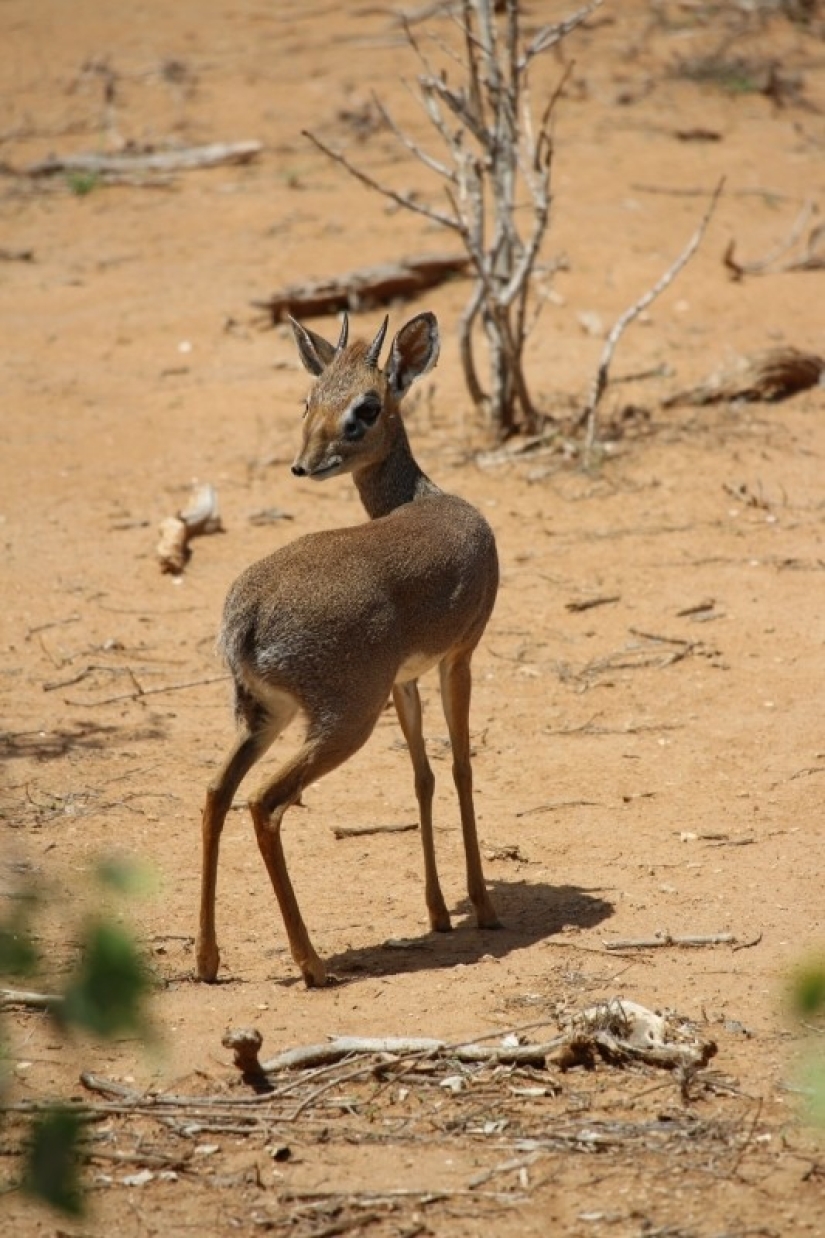
25. Since my technique is not yet so professional and long-range, finally I will show you some other people's portraits of these cute creatures. (c) masterok
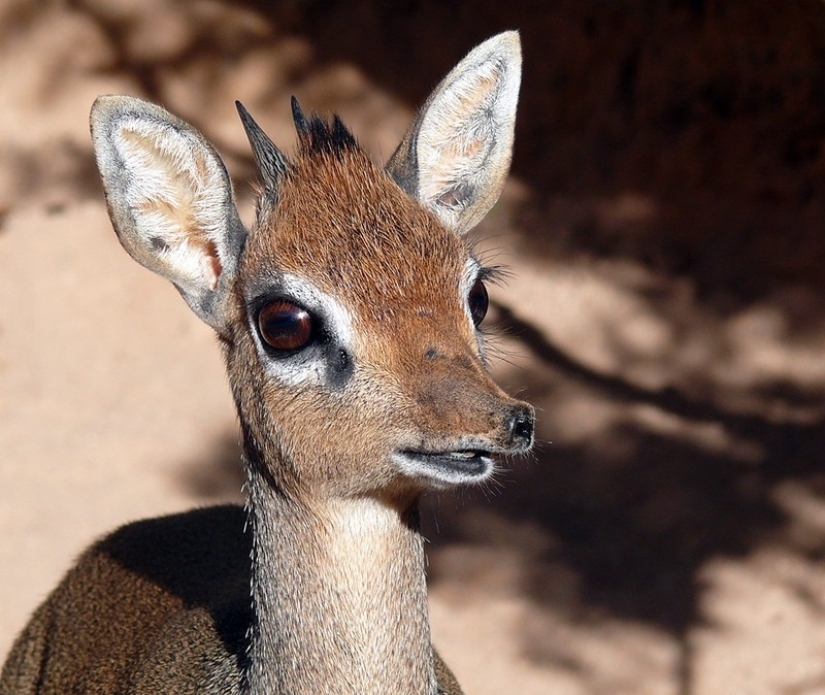
26. (c) masterok
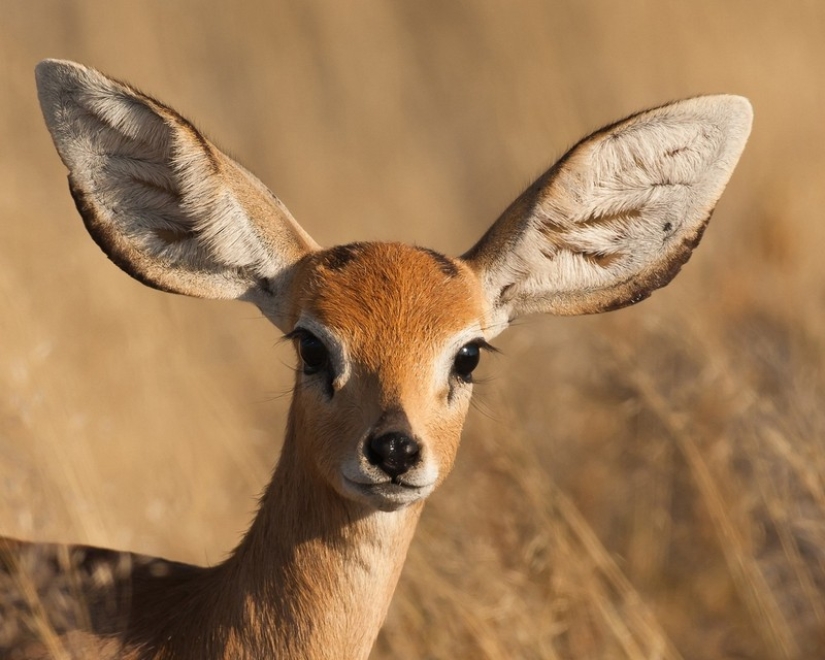
27. (c) masterok
Keywords: Antelope | Kenya | National park | Size
Post News ArticleRecent articles

It's high time to admit that this whole hipster idea has gone too far. The concept has become so popular that even restaurants have ...

There is a perception that people only use 10% of their brain potential. But the heroes of our review, apparently, found a way to ...
Related articles

Yellowstone is the first national Park in the world and also the largest of all national parks in North America. For nearly 150 ...

Lake Nakuru National Park is located in Kenya, 160 km northwest of Nairobi. "Nakuru "means"dusty place" in the Maasai language. In ...

During his trip to Africa, the famous Italian photographer Alex Bernasconi took thousands of pictures-from hiding hippos to ...

New Year's is a time to surprise and delight loved ones not only with gifts but also with a unique presentation of the holiday ...